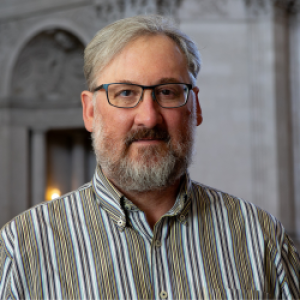
Tony C Sparks
()
Associate Professor
College of Health and Social Sciences
Bio:
Dr Sparks is an Associate Professor in Urban Studies and Planning in the School Public Affairs and Civic Engagement. He received his M.A. in Cultural Studies from Claremont Graduate University and his Ph.D. in Geography from the University of Washington. His research and teaching interests fall at the intersection of poverty, law, and social policy with a particular emphasis on homelessness and housing informality. He has published several articles on the implications and complications of life in a homeless encampment in Seattle Washington. His current research focuses on the everyday legal regulation of the bodies, spaces, and habitations of the informally housed in San Francisco.
In addition to the introduction and capstone courses in USP, he teaches courses related to law and urban social policy. These courses include USP 480: Introduction to Urban Policy and Analysis, USP 513: Politics, Law and the Urban Environment, USP 560: Urban Poverty and Politics, and USP 570 Urban Health Policy.
Teaching Interests
In addition to the introduction and capstone courses in USP, he teaches courses related to law and urban social polity. These courses include USP 480: Introduction to Urban Policy and Analysis, USP 513: Politics, Law and the Urban Environment, USP 560: Urban Poverty and Politics, and USP 570 Urban Health Policy.
Research Interests
Poverty, Governance, Social Policy, Homelessness. Social Inequality
Publications
Sparks, T., 2017. Citizens without property: Informality and political agency in a Seattle, Washington homeless encampment. Environment and Planning A, 49(1), pp.86-103.
Sparks, T., 2012. Governing the homeless in an age of compassion: Homelessness, Citizenship, and the 10 Year plan to end homelessness in King County Washington. Antipode, 44(4), pp.1510-1531.
(Forthcoming 2024) Tent City Seattle: Refusing Homeless and Making Home. University of Washington Press. Seattle
(2020) With Sheppard, E., and Leitner, H., 2020. World class aspirations, urban informality, and poverty politics: A North–South comparison. Antipode. (Second Author)
(2019) Reproducing Disorder: The effects of ‘broken windows’ policing on homeless people with mental illness in San Francisco. Social Justice (45 2/3, 51-81)
LinkedIn:
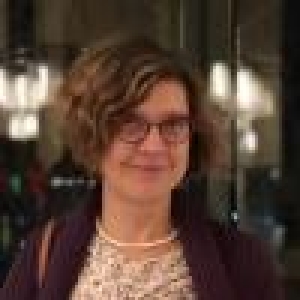
Alexandra Piryatinska
()
Professor
College of Science and Engineering
Bio:
Education
- Ph.D., Statistics, Case Western Reserve University, Cleveland, OH, USA, 2005
- Ph.D., Mathematics, Kyiv National University, Kyiv, Ukraine, 1995
- M.S./B.S., Mathematics, Kyiv National University, Kyiv, Ukraine,1987-1992
Research Interests
- Time series analysis. Segmentation, and classification of time series.
- Application of statistical methods in different areas of natural and medical sciences, such as neuroscience, cancer research, finance, and oceanography.
- Stochastic processes, Levy processes. Tempered stable distributions.
Teaching
- MATH 324, Probability and Statistics with Computing, San Francisco State University
- MATH 440, Probability and Statistics I, San Francisco State University
- MATH 442, Probability Models, San Francisco State University
- MATH 449, Categorical data analysis, San Francisco State University
- MATH 449, Introduction to Statistical Learning and Data Mining
- MATH 742, Advance Probability Models, San Francisco State University
Publications:
Peer-Reviewed Journal Articles:
- Darkhovsky, B., and Piryatinska A."Model-free classification of panel data via the ϵ-complexity theory." Communications in Statistics-Simulation and Computation 51.7 (2022): 4073-4086.
- Piryatinska, A., and Darkhovsky. B."Retrospective technology of segmentation and classification for GARCH models based on the concept of the $\epsilon $-complexity of continuous functions." Data Science in Finance and Economics 2, no. 3 (2022): 237-253.
- Piryatinska, Alexandra, and Boris Darkhovsky. "Retrospective Change-Points Detection for Multidimensional Time Series of Arbitrary Nature: Model-Free Technology Based on the ϵ-Complexity Theory." Entropy 23, no. 12 (2021): 1626.
- Lobach, I., Sampson, J., Lobach, S., Alekseyenko, A., Piryatinska, A., He, T. and Zhang, L., 2019. A simple approximation to the bias of gene-environment interactions in case-control studies with silent disease. Genetic epidemiology, 43(3):292-299.
- Darkhovsky B, Piryatinska A. Model‐free offline change‐point detection in multidimensional time series of arbitrary nature via ϵ‐complexity: Simulations and applications. Applied Stochastic Models in Business and Industry. (2018), 34(5):633-644.
- Dey T., Piryatinska A., Woyczynski W., Ozinga S., and Alberts JL., Quantifying the Complexity of Time Series with Applications to Postural Balance Studies of Parkinson's Patients. Statistics in Biopharmaceutical Research 10, no. 4 (2018): 301-315.
- Piryatinska A, Darkhovsky B, Kaplan A. Binary classification of multichannel-EEG records based on the ϵ-complexity of continuous vector functions. Computer methods and programs in biomedicine. (2017); 152:131-9.
- T.Y. Yen, S. Bowen*, R. Yen, A. Piryatinska, B. Marcher, Glycoproteins in Claudin-Low Breast Cancer Cell Lines Have a Unique Expression Profile, Journal of proteome research, (2017), 16 :1391–1400.
- Timpe L., Li D*, Yen T.Y., Wong J., Yen R., Marcher B. Piryatinska A., Mining the Breast Cancer Proteome for Predictors of Drug Sensitivity, Journal of Proteomics Bioinformatics, 8 (2015), 204-211. doi:10.4172/jpb.1000370.-
- Darkhovsky B., Piryatinska A. Quickest detection of changes in the generating mechanism of time series via epsilon-complexity of continuous functions, Sequential Analysis: Design methods and applications, 33(2014), 231-250.
- Piryatinska, A, EEG-sleep study, Wiley Interdisciplinary review, Computational statistics, 5(2013):326-333 (invited paper).
- Zheng Y., Moore H., Piryatinska A., Solis T., Sweet-Cordero, E.A. Mathematical modeling of tumor cell proliferation kinetics and label retention in a mouse model of lung cancer. Cancer Research 73(2013), 3525-3533. .
- Piryatinska A., Woyczynski W., Scher M.S., Loparo K.A., Optimal channel selection for analysis of EEG-sleep patterns of neonates, Computer Methods and Programs in Biomedicine, 106( 2012), 14-26.
- Piryatinska, A, Terdik G., Woyczynski W., Loparo, K.A., Scher, M.S., Zlotnik A., Automated detection of neonatal sleep stages, Computer Methods and Programs in Biomedicine, 95 (2009), 31-46.
- Piryatinska A, Glazman R., Weichman P. Near-zonal wavefronts and related features of equatorial dynamics derived from satellite altimeter data, Dynamic of ocean and atmosphere, 45 (2008), 26-45.
- Terdik G., Woyczynski W., Piryatinska, Fractional- and integer-order moments, and multi-scaling for smoothly truncated Lévy flights, Physical letters A, 348(2006), 94-109.
- Terdik Gy., Woyczynski W.A., and Piryatinska A. Are Levy flights multiscale? Pure Mathematics and Applications, 15(2005), 323-333.
- Piryatinska A, Saichev A.I.,. Woyczynski W.A, Models of anomalous diffusion: the subdiffusive case, Physica A: Statistical Physics, 349(2005), 375-424.
- Tsibulov P.M, Piryatinskaya S., Dmitrieva O.S., Piryatinska A., Pshonkivska I. M., Current Tendencies in Patenting Activities in Different Branches of Ukrainian Economy, Problemi Nauki, 3, 43-51, (2000) (in Ukrainian).
- Pavlenko H., Piryatinska A, On Representations of Cuntz Type Algebras, Methods Funct. Anal. Topology, 5 (1999), no. 3, 35--39.
- Piryatinska A., On Unitary Classification of Weakly Centered Operators, Vestnik Tambov University, 3 (1998), 79-83.
- Piryatinskaya A., Samoilenko Yu.S., Wild Problems in Representation Theory of *-Algebras whose Generators Satisfy Some Relations, Ukrainian Mathematical Journal 1 (1995), 70-78.
Peer-Reviewed Proceedings and Book Chapters Publications:
1. Darkhovsky, B.S., Piryatinska, A., Dubnov, Y.A., Popkov, A.Y. and Kaplan, A.Y., 2020, October. Complexity of Continuous Functions and Novel Technologies for Classification of Multi-channel EEG Records. In International Conference on Neuroinformatics (pp. 137-142). Cham: Springer International Publishing.
2.Darkhovsky, B.S., Piryatinska, A., Dubnov, Y.A., Popkov, A.Y. and Kaplan, A.Y., (2020), October. The complexity of Continuous Functions and Novel Technologies for the Classification of Multi-channel EEG Records. In International Conference on Neuroinformatics (pp. 137-142). Springer, Cham.
3 Darkhovsky B., Piryatinska A., Detection of changes in binary sequences, Proceedings of Stochastic Models, Statistics and Their Applications - Dresden, Germany, March 2019, editors: A.Steland, E.Rafajlowicz, ͕ Ostap Okhrin, Springer Proceedings in Mathematics and Statistics, 157-176.
4. Rodriguez D*., Piryatinska A, Zhang X. Neural Forests and Personalized EMG Gesture Classification, In proc. of the 2016 SAI Computing Conference, London, United Kingdom, July 13-15, 2016.
5. Darkhovsky B., Piryatinska A., Prohorov A., Xia F., The epsilon-complexity of copulas, Proceedings of the 10th IEEE Conference on Industrial Electronics and Applications ICIEA 2015, Auckland, New Zealand, 17th June 2015
6. Darkhovsky B., Piryatinska A., Novel methodology of change-points detection for time series with arbitrary generating mechanisms, Proceedings of 12th German-Polish Workshop on Stochastic Models, Statistics and Their Applications, Wroclaw, Poland, February 2015, editors: A. Steland, E. Rafalowicz, K. Szajovsky, Springer Proceedings in Mathematics and Statistics, 122 (2015) 241-252
7. Darkhovsky B., Piryatinska A., New Approach to the Segmentation Problem for Time Series of Arbitrary Nature, Proceedings of the Steklov Institute of Mathematics. The issue is dedicated to the 80th anniversary of Albert N. Shiryaev, 287(2014), 61-74.
8. Darkhovsky B., Piryatinska A., A new complexity-based algorithmic procedures for electroencephalogram (EEG) segmentation, Signal Processing in Medicine and Biology Symposium (SPMB), 2012 IEEE, 1 – 5.
9. Piryatinska A., Pavlenko H., On generalization of the Cuntz algebras. Symmetry in nonlinear mathematical physics, Proceedings Institute of Mathematics, National Academy of Science Ukraine, 30, Kiev, Part 1, 2 (Kyiv, 1999), 357—363.
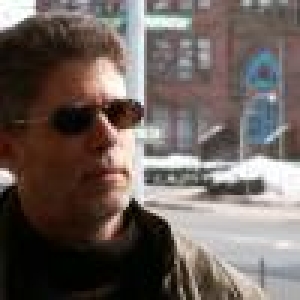
Jeff Jacoby
()
Professor
Broadcast Communication Arts, College of Liberal and Creative Arts
Bio:
Jeff practices sound and radio art, sound design, directing, producing, writing, and performing, and happily serves as Professor of Media Arts in the Department of Broadcast & Electronic Communication Arts at San Francisco State University. Jeff is a Lynda.com author, founder of Living Sound Productions (in 1980), and has worked at Quinnipiac University, Real Art Ways, The Media Arts Center, and the National Radio Project. Current projects include Into Sonic Space (sound art installations), The Traveling Radio Show (creative radio program), and collaborations with artists working in a variety of mediums. Jacoby has been recognized for his work with an Emmy award and two Emmy nominations, two Crystal Radios, five Broadcast Education Association Best of Competition Awards, and two Ciné Golden Eagles, among other honors. His work has been heard on PBS, NPR, and other venues, including art festivals such as South by Southwest, Black Maria, Festival du Cinéma de Paris, ASIFA East, and in galleries across the country. Jeff lives in San Francisco with the brilliant visual artist Sharon Steuer <www.sharonsteuer.com>. For more information about Jeff visit www.jeffjacoby.net. He also has Facebook & LinkedIn pages, and follow him on Twitter: @professornoize.
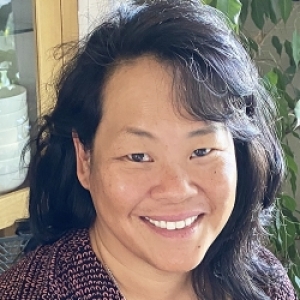
Diana S Chu
(
She/Her/Hers
)
Professor
Biology, College of Science and Engineering
Bio:
BS in Biochemistry from the University of Californa at Berkeley
PhD in Molecular Biology from the University of California, Los Angeles
Post-doctoral Research in Genetics and Cell Biology at the University of California at Berkeley
Dr. Chu's research is focused on understanding mechanisms that package DNA during sperm formation that contribute to fertility. The Chu Lab uses the model organism C. elegans, which allows us to use approaches in biochemistry, cell biology, molecular biology, and genetics.
Website:
Research
We use the model organism C. elegans to understand how chromosome architecture and dynamics influence gene expression and male fertility.
Epigenetic Paternal Information
Histones are proteins that package DNA. We've identified a histone H2A variant in C. elegans we have named HTAS-1. Our initial analysis has revealed that HTAS-1 is a sperm-specific histone H2A variant. We are using genetic analysis to determine if worms with a mutant htas-1gene are infertile. We've shown that HTAS-1 is indeed required for optimal fertility and are now currently investigating the role of HTAS-1 in chromosome compaction by fluorescence microscopy.
Because histone H2A variants in other organisms are important for gene expression, we are also determining if HTAS-1 is important for regulating gene expression during sperm formation. Initial DNA microarray data has indeed identified many genes whose expression is changed in the htas-1 mutant. We are now investigating the role of HTAS-1 in regulating these genes.
In addition, because HTAS-1 protein differs from canonical H2A proteins in the sequence of the N-terminal tail region (which is known to be post-translationally modified), we are characterizing post-translational modifications that occur on this sperm-specific histone H2A variant.
Partitioning chromosomes during sperm formation
Chromosome segregation during sperm meiosis differs from that of oocyte meiosis and mitosis. We are interesting in defining how these differences are implemented.
We have identified a set of phosphatase proteins we call GSP-3 and GSP-4 that play roles in sperm chromosome segregation. We are characterizing the role of GSP-3 and GSP-4 using genetic mutant analysis and immunostaining. In order to differentiate how the sperm-specific phosphatases (GSP-3 and GSP-4) differ in function from phosphatases found in oocyte meiosis and mitosis (GSP-1 and GSP-2), and characterizing how GSP-1 and GSP-2 function in sperm meiosis. We are also initiating efforts to look for proteins that interact directly with GSP-3 and GSP-4 by coimmunprecipitation.
Publications
Samson M, Jow MM, Wong CL, Fitzpatrick C, Aslanian A, Saucedo I, Estrada R, Ito T, Park S R, Yates JR and Chu DS
The specification and global reprogramming of histone epigenetic marks during gamete formation and early embryo development in C. elegans
Accepted to PLoS Genetics
Chu DS and Shakes DC
Adv Exp Med Biol. 2013;757:171-203. doi: 10.1007/978-1-4614-4015-4_7. Review.
Wu JC, Go AC, Samson M, Cintra T, Mirsoian S, Wu TF, Jow MM, Routman EJ, Chu DS
Sperm development and motility are regulated by PP1 phosphatases in Caenorhabditis elegans.
GENETICS 2012 Jan;190(1):143-57. Epub 2011 Oct 31.
Wu TF, Nera B, Chu DS and Shakes DC
Systems Biology in Reproductive Medicine 2010 Jun;56(3):222-35.
Han T, Manorhan AP, Harkins TT, Bouffard P, Fitzpatrick C, Chu DS, Theirry-Mieg D, Thierry-Mieg J, and Kim JK
Germline-generated 26G endo-siRNAs regulate spermatogenic and zygotic gene expression in C. elegans
Proceedings of the National Academy of Sciences 2009 Nov 3;106(44):18674-9.
Shakes DC, Wu J, Sadler PL, LaPrade K, Moore LL, Noritake A and Chu DS
Spermatogenesis-specific features of the meiotic program in Caenorhabditis elegans
PLoS Genetics 2009 Aug;5(8):e1000611. Epub 2009 Aug 21.
Wu, TF and Chu DS
Sperm chromatin: fertile grounds for proteomic discovery of clinical tools.
Mol Cell Proteomics 2008 Oct 7 (10):1876-86.
Wu, TF and Chu DS
Reproductive BioMedicine Online 2008 Jan;16 (1):13-22.
Chu DS, Liu H, Nix P, Wu TF, Ralston EJ, Yates JR, and Meyer BJ
Sperm chromatin proteomics identifies evolutionarily conserved fertility factors.
Nature 2006 Sep 7, 443 (7107):101-5
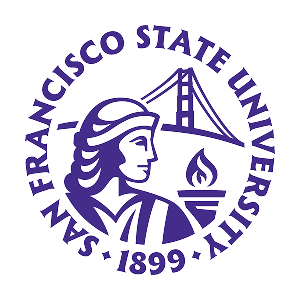
Karen E Lovaas
()
Associate Professor
Communication Studies, College of Liberal and Creative Arts
Office Hours (Additional Info):
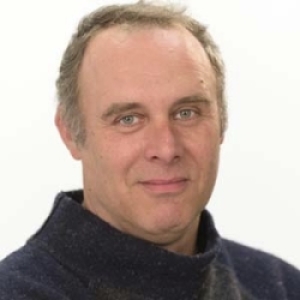
Misha Antonich
()
Lecturer
Broadcast Communication, ArtsCollege of Liberal and Creative Arts
Bio:
Misha Antonich has been tenured at CCSF since fall 2011. He's been teaching at San Francisco State University since fall 2013. He previously taught at SF State from 2004-2005.
Misha Antonich was raised bi-culturally/bi-lingual by American parents in Germany and spent his teens and twenties living between Heidelberg, Munich and Berlin.
In the 1990's, after spending an intermittent teen year in Ft. Collins, Colorado, he caught the "acting bug" and returned to Berlin, auditioned and won a place in the Theater Arts school, "Die Etage," where he completed the three-year dramatic acting program and gained "equity" in Germany allowing him to work in stage and film productions. Most notably, he worked with the German/English theater troupe the "Berlin Play Actors" and appeared in the early seasons of the daily soap, "Gute Zeiten, Schlechte Zeiten" ("The Young and The Restless" in German, however the content is pretty cringe worthy). Concerned about his financial and personal future, he detoured and trained to be a shipwright carpenter journeyman - and loved the experience though he declined to pursue it as a career.
He then rediscovered his passion for communications, ensemble work and the arts and approached it from a different angle this time: media production (specifically audio/visual media, video and digital media) in the late 1990's. He moved to the city of his birth, San Francisco and started studying video and media production, remaining committed to the craft in SF State's BECA program. He deeply valued and thoroughly enjoyed studying toward his Bachelor's of Arts (B.A.) there, but things really took off for him once he entered BECA's Master's program (M.A.). Upon graduation, he was sincerely humbled to have been selected to be his year's outstanding graduate student of the department.
Alongside his academic pursuits, Misha worked consistently in a long-term position (six years) as a video assistant and later full editor for the live music video production company MX Entertainment in San Francisco. He cut his teeth and many videos on acts such as the Rolling Stones, the Who, Ween, Rush, Usher, (lil) Bow Wow, Herbie Hancock, Kiss, Los Lobos, Reggae on the River (Various artists) and many other artists.
In early 2006, Misha accepted a teaching job offer and, along with his wife and son, headed off to Busan, South Korea to teach video editing, visual effects and video production as a guest professor at Kyungsung University for three semesters. It was a great experience, full of wonderful people and encounters that he hopes he'll be able to rekindle in the future.
Misha returned to San Francisco in 2007 and was invited to join the Broadcast and Electronic Media Arts Department (BEMA) at City College of San Francisco, where he received tenure in 2011. At City College, he's overjoyed to be working with and alongside talented media students and colleagues. He mainly teaches video production (studio and field), editing (introduction and advanced), motion graphics, digital media skills classes. He's also happy to be teaching classes at his alma mater SF State (video editing and motion graphics) since Fall 2013.
Associations:
Misha was the advisor to C3 Media Club - CCSF's first media producer club focused on video editing.
Co-creator of the CCSF "Festival of the Moving Image", a yearly theatrical showcase of student work.
In the industry, Misha works as an editor, animator, producer and technical director for local media agencies.
As time allows, Misha relishes working with others on personal and artistic projects and has participating in a growing number.
My interest include: TV, Video, Film, Animation, Editing, Hiking, reading, conversing, computing.
Degrees:
- Associates of Arts (A.A.) - 1989 University of Maryland (European Division - Munich Campus)
- Theaters Arts Degree (Stage Equity Germany) - 1993 "Die Etage" (Berlin Theater School)
- Bachelor of Arts (B.A.) - 2002 San Francisco State U. - BECA/TV & Radio (San Francisco)
- Masters of Arts (M.A.) - 2004 San Francisco State U. - BECA/TV & Radio (San Francisco)
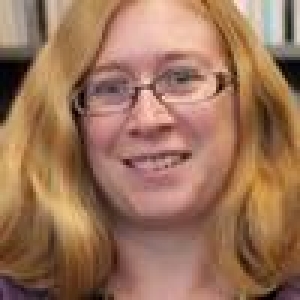
Laura Lisy Wagner
()
Associate Professor
History, College of Liberal and Creative Arts
Bio:
I am a cultural and intellectual historian of early modern Europe and its relationship with the wider world. My research focuses on central and eastern Europe, but my writing and teaching more generally look at transcultural trends across Europe and beyond. My first book, Islam, Christianity, and the Making of Czech Identity, 1453 - 1683, examines the construction of Czech identity from the Fall of Constantinople to the final siege of Vienna through discourse about the Turk. It utilizes written and material texts and draws on postcolonial theory to describe the hybrid nature of identity on the peripheries of Europe in this period. I am currently working on two classroom texts - an intellectual history about changes in epistemology during the early modern period and a more general textbook about interactions between Europe and the wider world. My next archival project will look at the construction of artificial fishponds in the sixteenth century in southern Bohemia and the relationship between projects of state-building and land development in the period. My teaching interests encompass a variety of topics, from courses on early modern Europe and the world to global history courses on love and sexuality.
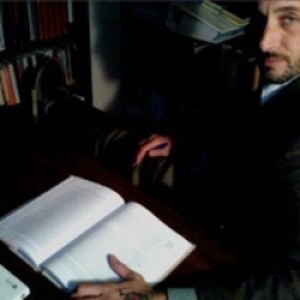
David Grant Smith
()
Instructional Faculty, Special Programs
Classics, College of Liberal and Creative Arts
Website:
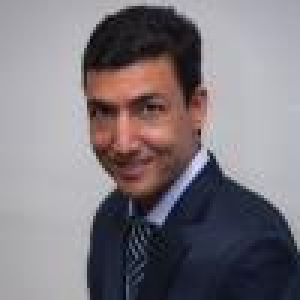
Hamid Mahmoodi
()
Professor
College of Science and Engineering
Bio:
Hamid Mahmoodi received his Ph.D. degree in electrical and computer engineering from Purdue University, West Lafayette, IN, in 2005. He is currently a professor of electrical and computer engineering in the School of Engineering at San Francisco State University. His research interests include low-power, reliable, and high-performance circuit design in nano-electronic technologies. He has published more than one hundred and fifty technical papers in journals and conferences and holds six U.S. patents. He was a co-recipient of the 2008 SRC Inventor Recognition Award, the 2006 IEEE Circuits and Systems Society VLSI Transactions Best Paper Award, 2005 SRC Technical Excellence Award, and the Best Paper Award of the 2004 International Conference on Computer Design. He has served on technical program committees of Custom Integrated Circuits Conference, International Symposium on Low Power Electronics Design, and International Symposium on Quality Electronics Design.
Websites:
CV:
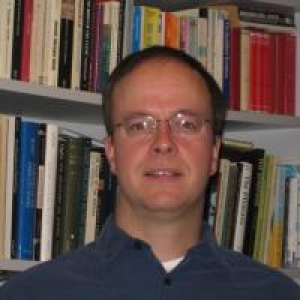
David Decosta Leitao
()
Emeritus Faculty/Instructional Faculty
Classics, College of Liberal and Creative Arts
Bio:
David Leitao received his A.B. in History (Phi Beta Kappa) from Dartmouth College in 1986. After a year at the Harvard Law School and another at the post-baccalaureate program in Classics at the University of Pennsylvania, he went for graduate study in Classics to the University of Michigan, where he received an M.A. in 1990 and Ph.D. in 1993. His dissertation was entitled "The 'Measure of Youth': Body and Gender in Boys' Transition Rites in Ancient Greece." He has published numerous articles on Greek adolescence and on the history of gender and sexuality in ancient Greece. In 2012, he published a book with Cambridge University Press entitled The Pregnant Male as Myth and Metaphor in Classical Greek Literature.
Watch video profile
Book
- The Pregnant Male as Myth and Metaphor in Classical Greek Literature (Cambridge and New York: Cambridge University Press, 2012)(paperback edition, 2014)
Reviews of the book may be found at Choice 50 (2013) 2511 (J. S. Louzonis); Bryn Mawr Classical Review 11.10 (2013)(Y. Hong); Glotta 86 (2014) 201-06 (des Bouvrie); Journal of Hellenic Studies 134 (2014) 173-74 (D. Kokkini); Classical Review Online 11.13.2014 (S. Sandford); Journal of the History of Sexuality 24 (2015) 159-61 (J. Mayock); Classical Journal Online 2015.02.11 (T. Joseph); Phoenix 68 (2014) 162-64 (M-P. Krück); Cadmo (2016)(N. Rodrigues)
Articles
- "Sacred Band of Thebes," in H. Chiang, ed. Global Encyclopedia of Lesbian, Gay, Bisexual, Transgender, and Queer (LGBTQ) History (Farmington Hills, MI: Charles Scribner’s Sons, 2019)(in press)
- "Achilles in Love: Politics and Desire in Aeschylus' Myrmidons," in L. Pratt and C. Sampson, eds., Engaging Classicsl Texts in the Contemporary World: from Narratology to Reception (Ann Arbor, MI: University of Michigan Press, 2018) 51-70
- "Plato and the Philosophical Dialogue," in E. McCallum and M. Tuhkanen, eds., Cambridge History of Gay and Lesbian Literature (Cambridge and New York: Cambridge University Press, 2014) 34-50
- "Sexuality in Military Contexts," in T. Hubbard, ed., A Companion to Greek and Roman Sexualities (Malden,MA: Wiley Blackwell, 2014) 230-43
- "Male Improvisation in the Cult of Eileithyia on Paros," in M. Parca and A. Tzanetou, eds.,Finding Persephone: Women's Rituals in the Ancient Mediterranean (Bloomington: Indiana University Press, 2007) 252-7: winner of Paul Rehak Prize for 2008, awarded by the Lambda Classical Caucus for best article of the year in the field of Classics on ancient sexuality and gender roles
- "Ritual? What Ritual?" in A. Barchiesi et al., eds., Rituals in Ink: A Conference on Religion and Literary Production in Ancient Rome (Munich: Franz Steiner Verlag, 2004) 149-53
- "Adolescent Hair-cutting Rituals in Ancient Greece: a Sociological Approach," in D. Dodd and C. Faraone, eds., Initiation in Ancient Greek Rituals and Narratives: New Critical Perspectives(London: Routledge, 2003) 109-29
- "The Legend of the Sacred Band," in M. Nussbaum and J. Sihvola, eds., The Night of Reason: Erotic Experience and Sexual Ethics in Ancient Greece and Rome (Chicago: University of Chicago Press, 2002) 143-69
- "Leukippos [1-4]," in H. Canck and H. Schneider, eds., Der neue Pauly: Enzyklopädie der Antike, vol. 7 (Stuttgart 1999) 106
- "Leukippiden," in H. Canck and H. Schneider, eds., Der neue Pauly: Enzyklopädie der Antike, vol. 7 (Stuttgart 1999) 106
- "Solon on the Beach: Some Pragmatic Functions of the Limen in Initiatory Myth and Ritual," in M. Padilla, ed., Rites of Passage in Ancient Greece: Literature, Religion, Society (special issue of Bucknell Review)(1999) 247-77
- "Senecan Catoptrics and the Passion of Hostius Quadra (Sen. nat. 1)," Materiali e Discussioni 41 (1998) 127-60
- "Plautus, Stichus 155ff: a Greek Parody of Plato's Symposium?" Mnemosyne 50 (1997) 271-80
- "The Perils of Leukippos: Initiatory Transvestism and Male Gender Ideology in the Ekdusia at Phaistos," Classical Antiquity 14 (1995) 130-63
Translations
- select translations of ancient Greek texts in T, Hubbard, ed., Homosexuality in Greece and Rome: a Sourcebook of Basic Documents in Translation (Berkeley: University of California Press, 2003)
Book Reviews
- review of W. Penrose, Postcolonial Amazons: Female Masculinity in Ancient Greek and Sanskrit Literature (New York: Oxford University Press, 2016) in American Historical Review 123.4 (2018) 1365-1366
- review of A. Scholtz, Concordia Discors: Eros and Dialogue in Classical Athenian Literature (Society for Hellenic Studies, 2008) in Classical Bulletin 84 (2008) 104-05
- review of L. Brisson, Sexual Ambivalence: Androgyny and Hermaphroditism in Graeco-Roman Antiquity (Berkeley 2002) in Scholia 12 (2003) 145-48
- review of C. Calame, The Poetics of Eros in Ancient Greece, in Journal of the History of Sexuality 9 (2000) 494-97
- review of C. Williams, Roman Homosexuality, in Journal of Homosexuality 40 (2000) 163-68
Talks on Peer-Refereed Panels
- "Metrodorus, Chrysippus, and the Birth of Athena," Classical Association of the Middle West and South Annual Meeting, Minneapolis, April 2009
- “Lucian’s Pregnant Moonmen,” refereed panel, Classical Association of the Middle West and South Annual Meeting, Austin, April 2002
- “Greek Childbirth Rituals: Female and Male Versions,” Conference on Women’s Rituals in Context, University of Illinois, October 2002
- “The Early History of the Kouretes,” Classical Association of the Middle West and South Annual Meeting, Knoxville, April 2000
- "A Male Pregnancy Ritual from Cypriot Amathous and the Strategies of Replacement," American Philological Association, Washington, DC, December 1998
- "Blepyros' Turd Child (Aristoph., Eccl. 369-71): Male Pregnancy and the Rule of Women," Pacific Ancient and Modern Language Association, Claremont, CA, November 1998
- “Exclusion of the Agamoi from the Gymnopaidiai and the Politics of Viewing at Sparta,” American Philological Association, Chicago, December 1997
- “Homoerotic Titillation and Greek Rites of Passage,” Pacific Ancient and Modern Language Association, San Jose, November 1997
- “Theocritus 12 and the Diokleia,” Classical Association of the Middle West and South Annual Meeting, Boulder, April 1997
- “Disguise and Festival in Greek Battle Narratives,” Classical Association of the Middle West and South Annual Meeting, April 1995, Omaha
- "(Re)birth from the Oxhide: Sacrificial and Initiatory Motifs in the Myth of Orion," Classical Association of the Middle West and South Annual Meeting, April 1994, Atlanta
- "Transvestism in Greek Initiation," Classical Association of the Middle West and South Annual Meeting, April, 1993, Iowa City
Invited Talks
- "'Lightness': Calvino Reading Lucretius, Ovid (and Plato)," Conference at Stanford University entitled "Will Literature Survive the 21st Century: A Colloquium Inspired by Italo Calvino's 'Six Memos for the Next Millennium," May 2014
- “Giving Birth to Thought: Prequel to Plato,” UC Berkeley Brown Bag Series in Ancient History and Classical Archaeology, October 2007
- “Respondent’s Remarks,” Rituals in Ink: Roman Religion and Literature, conference at Stanford University, February 2002
- “Adolescent Hair-Cutting Rituals in the Ancient Greek World: a Sociological Approach,” Department of Classics, University of Chicago, March 2000
- “Male Pregnancy Rituals in the Ancient World,” Department of Classics, UCLA, February 2000
- "The Legend of the Sacred Band," for a Conference Entitled “Queer Republic: Homosexuality in Greek Politics and Political Thought,” Department of Classics, University of Chicago, February 1999
- “Male Pregnancy in the Greco-Roman World,” Cornell University, October 1997
- “Male Pregnancy in the Greco-Roman World,” UC Berkeley, Group in Ancient History and Mediterranean Archaeology, October 1997
- “Ritual Male Accouchement in the Cult of Aphrodite at Cypriot Amathous,” Conference on Religion and Gender in the Ancient Mediterranean, Ohio State University, May 1997
- “Carnival History,” University of Mississippi, February 1995
- “The Passion of Hostius Quadra,” Miami University (Ohio), February 1995
- “Carnival History,” University of Minnesota, January 1995
- “Male Initiation in Classical and Hellenistic Crete,” Dartmouth College, January 1995
- “Carnival History: Some Battle Legends in Herodotus, Thucydides, and Plutarch,” University of Wisconsin-Madison, January 1995
- “The Study of Adolescence in Ancient Greece,” Michigan Society of Fellows, University of Michigan, May 1994
- “Rites of Passage and the Classics,” Case Western Reserve University, March 1994
- “Male Initiation in Classical Crete: Some Idioms of Transition,” Ohio State University, February 1994
Talks at San Francisco State
- "When Does Life Begin? Some Ancient Texts on Abortion," SFSU ORSP Research Symposium, June 2014
- “The Origin of Platonic Love,” SFSU Classics Student Association Lecture Series, April 4, 2012
- “Theorizing Male Pregnancy in Ancient Greece,” Classics Faculty Colloquium, SFSU, May 2009
- “Artemidorus on the Couch: Some Sexual and Transsexual Dreams from the Second Century CE,” Classics Student Association Annual Lecture Series, San Francisco State University, May 2002
- "Anal Birth and Its Discontents," Graduate Literature Association, San Francisco State University, November 1998
- “Orpheus and the Third Sex: Homosexual Ecstasy in some Orphic Cults?” Classics Student Association Lecture Series, San Francisco State University, March 1996
- “Carnival History,” San Francisco State University, February 1995